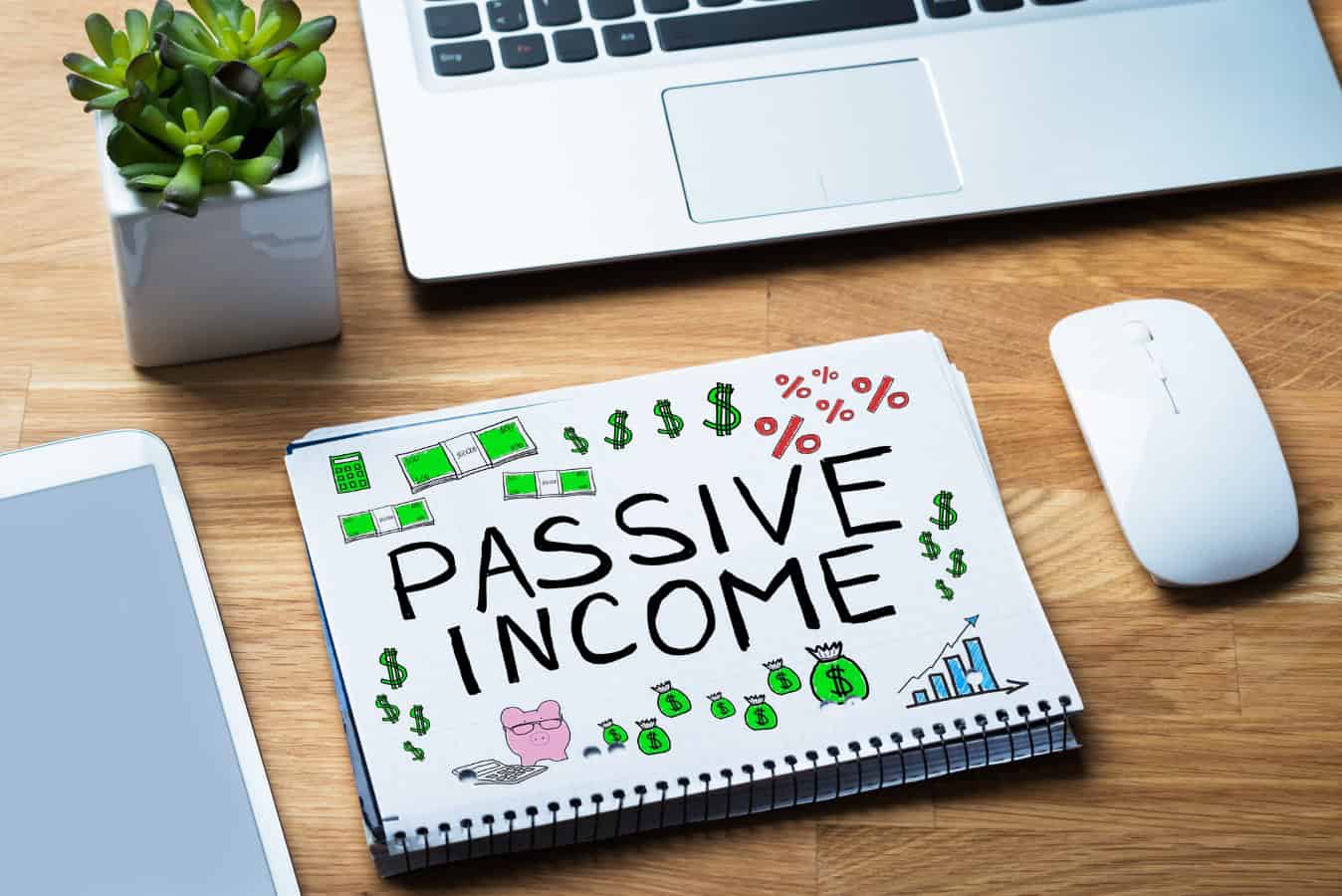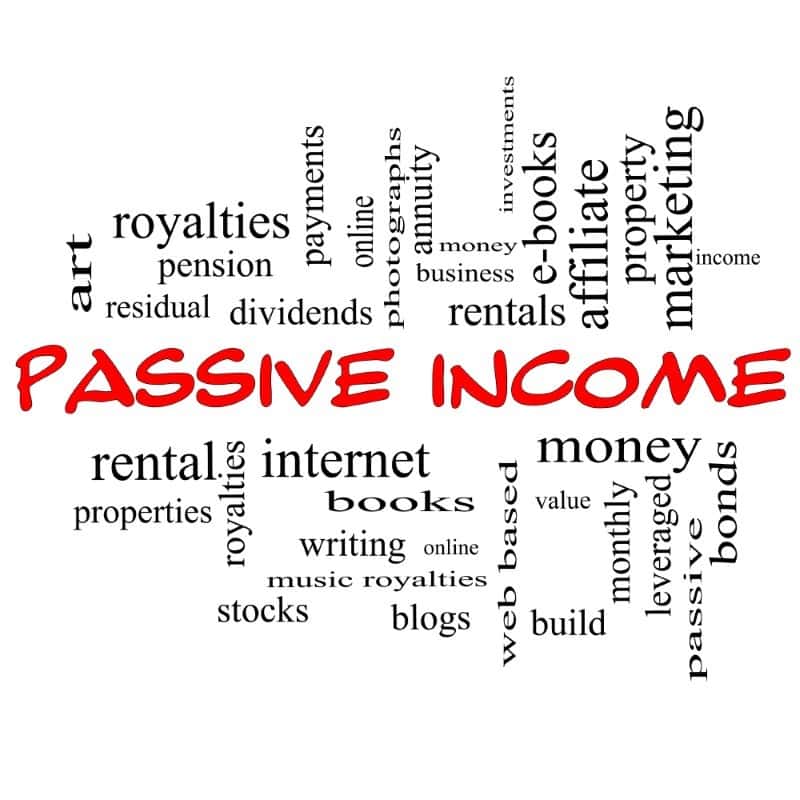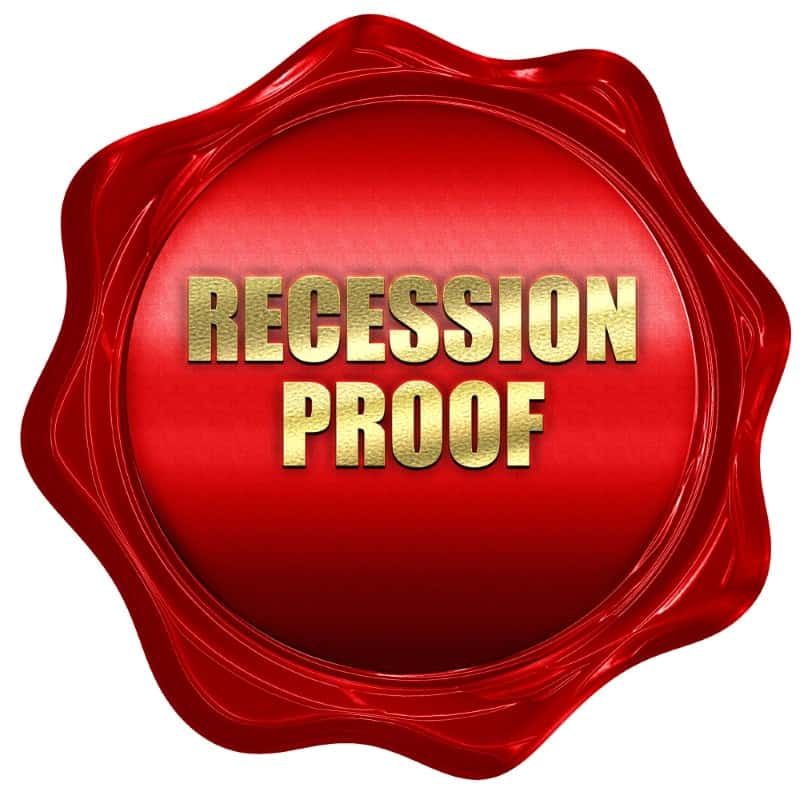Unlock Financial Freedom with These 15 Smart Investments for Monthly Passive Income

Dreaming of a steady monthly passive income? It’s not just for the wealthy—it’s attainable for anyone willing to explore their options. Whether you’re starting out or looking to diversify, discover how to build a reliable income stream from well-known choices to hidden opportunities.
Government Bonds & Corporate Bonds

Bonds are investments where investors lend money to governments or corporations to earn passive income. Government bonds tend to have relatively stable, low-interest rates, and while these rates can fluctuate, they aren’t part of a high-risk portfolio.
Of course, government bonds can allow you to still gain on your investments while diversifying your overall portfolio. They have a place in virtually every portfolio, although the passive income from government bonds is relatively low.
Fortunately, with some legwork, you can find bonds that will provide you with a monthly passive income stream. Due to the high inflation, government I-Bonds offer decent returns currently. One drawback of I-Bonds is that the interest and principal are paid when you cash the bond.
Corporate bonds pay higher rates compared to government bonds since risk and reward are related. However, some corporate bonds tend to be relatively safe, provided the bond has a solid rating. You do have to examine a bond’s prospectus and information before making such a purchase, as some bonds do not pay regular monthly income, opting instead to pay quarterly dividends.
One can purchase bond funds via an investment advisor or brokerage services. BND is one of the most popular Vanguard bond ETFs.
One can purchase U.S. Treasury bonds, including I-Bonds, at TreasuryDirect.gov.
High Yield Savings Accounts

Very few people interested in making monthly income don’t have a savings account. Savings accounts, of course, are highly liquid and accessible places to store your money. Many savings accounts do not offer high-interest rates, although this is starting to change.
Savings accounts may not be the best place to earn a healthy interest rate on your money, and the inflation rate is usually more than the interest rate that such high-yield savings accounts will provide. Fortunately, that appears to be turning around. Interest rates are rising.
Furthermore, individuals interested in earning a steady stream of passive income from a savings account may want to check out high-yield savings accounts. A high-yield savings account is a savings account that is highly liquid and has virtually no risk associated with it as long as you stay within FDIC Insurance limits.
The bank’s interest rates are set and usually more significant than those of a regular savings account. The interest rate here is more extensive than when compared to a traditional savings account, often reaching as high as 25 times the interest rate of regular savings accounts.
Certificates of Deposit

A Certificate of Deposit is a low-risk method of earning monthly income. They operate similarly to a savings account: You’ll invest in a Certificate of Deposit for a targeted period. If the CD is structured correctly, you will receive monthly investment income.
Here’s how it works: First, you’ll connect with a bank that offers a Certificate of Deposit. You’ll pay attention to two particular aspects of this CD: The interest rate and the term. Let’s say you invest at an interest rate of 5% for a term of two years. The interest will compound over this period. You’ll get your investment principle back at the end of the two years.
Some CDs do not have penalties if you need to withdraw your money early, but most do. This means that these investments are not particularly liquid, as you may lose interest if you need to access the entire fund before the CD fully matures. However, if structured right, you can get the interest paid monthly. CDs usually don’t have particularly high-interest rates, as they are typically regarded as relatively safe investments.
The good news about that safety is that FDIC will secure your investment. CDs are backed by the FDIC, meaning that the principal of your investment will be protected, up to $250,000. CDs are one of the safest ways to invest income and be guaranteed a return.
Dividend Stocks

Dividend-paying stocks have been the cornerstone of individuals searching for investments for monthly income.
Most dividend stocks have dividends paid quarterly. However, some dividend stocks can provide you with monthly income.
If you are interested in purchasing a monthly dividend stock, you’ll have to check the dividend payment schedule. Dividend stocks only pay monthly if it is expressly noted on the information page about a stock.
If you are going to invest in a stock that provides a monthly dividend payment, make sure that you confirm that the stock is sustainable, can afford to pay its dividend every month, and has a solid history of steadily paying its dividend and increasing payments over time.
Another option is to build a portfolio of several dividend-paying stocks. Some of the stocks in your portfolio will pay in one month and others will pay in the other months. A portfolio of several dividend-paying stocks can be an excellent investment for monthly passive income.
Remember, this specific asset class is not legally required to pay its dividend. That means that a company could, in theory, stop paying its dividend at any time. Of course, doing so would devastate their stock price, so this is only likely to happen if the company is in real financial trouble.
As such, the best thing you can do here is to ensure that the monthly dividend stock you want to invest in is on solid financial footing. One option is sticking to stocks with a steady history of increasing dividend payments, such as Dividend Kings or Dividend Aristocrats.
Real Estate Investment Trust

Real estate investment trusts or REITs own, operate, or finance income-producing real estate across many property sectors. Since REITs are supposed to distribute 90% of their income as dividends, most REITs provide a higher dividend than other companies.
Real estate investment trusts are high cash flow businesses that collect rental income. REITs are organized to provide certain tax advantages for the owners and operators of these stocks.
REITs are one of popular investments that pay monthly income generated from rental properties without ever having to worry about the stress of actually owning or maintaining one of these properties.
However, it is essential to recognize that all REITs are not created the same, and you may want to consider which type of REIT to invest in if this is a place where you decide to invest your money.
Different REITs operate in different locations and across different types of property. This can ultimately significantly impact the kind of dividends they can offer, their long-term financial stability, and their exposure to volatility and other market swings.
In other words: If you are going to invest in a REIT, get a good understanding of its background and if the monthly income it offers is something you can rely on.
Investors can buy Public REITs like VNQ (Vanguard), SCHH (Schwab), FREL (Fidelity) using any brokerage firm.
Besides REITs traded on stock exchanges, private REITs are also available to investors. Some of the most accessible ones are crowdfunded investments for non-accredited investors.
The advantage of private REITs is the ability to invest in specific real estate market sectors where one may not have the expertise. Private REITs can be tailored towards several niche areas.
Actively Managed Mutual funds and ETFs

A mutual fund is a specific type of investment asset class. When structured properly, it can provide you with monthly passive income.
This type of financial instrument will aggregate a variety of different asset classes. You can buy mutual funds that consist of many kinds of stocks, bonds, or other mutual funds. Buying a share in a mutual fund is similar to buying any other stock. The fund prices will go up and down, and you can buy and sell a share with very similar levels of flexibility.
Unlike other passive funds, like index exchange-traded funds, mutual funds are professionally managed. Fund managers and other financial professionals personally curate funds, spending time working with others to ensure that the fund is balanced to meet the goals of the investors.
It is important to remember that different funds will have different financial goals, including providing growth vs. income investing options. If you are interested in drawing monthly payments from a fund, you should seek a fund offering such income.
Many funds are structured this way. These funds are often viewed as safer investments because of their inherent diversification. Professional managers should, in theory, be able to help invested individuals manage their risk and still earn a profit.
However, this professional management isn’t free and comes at a price: Administration fees. These fees come off the top of any profit earned by a fund and go directly to the people who manage the fund. Different fee structures operate differently, so it is worth checking out how much you will lose on administering such funds.
Passive Index Funds and ETFs

A passive index fund or exchange-traded fund helps beginners learn how to start investing in stocks and potentially allows them to generate monthly income.
Passive exchange-traded funds are somewhat similar to mutual funds. You can buy and sell them on the stock market or a secondary market. This makes it a type of pooled security. Like mutual funds, ETFs are various funds that have been pooled together. One can organize them around an industry, asset class, location, or more.
Individuals interested in generating monthly income from exchange-traded funds can easily find an ETF that will generate income in this way.
Management is the most significant difference between a passive index fund and an active mutual fund. An investment professional will monitor the fund for performance and balance, swapping out assets on an as-needed basis to ensure that the fund performs correctly and meets investor goals.
Passive ETFs and funds have no such manager. Professionals create passive index funds, but from there, it is typically left entirely alone. One thing that makes index funds so cheap is their lack of active management. It means that investors have to keep an eye on the fund’s performance on their own and adjust their portfolios accordingly.
One can generate dividends from passive ETFs, resulting in monthly passive income.
Like active mutual funds, index ETFs allow for a wide swath of diversification while still meeting your investing goals. You can choose what type of ETF to invest in, including ETFs that provide regular dividends. This makes them ideal for income generation.
At the same time, there are typically meager expenses, no commissions to worry about, and the chance to focus on your chosen industries. ETFs can also provide easier access to the stock market: Unlike active mutual funds, you can buy an ETF any time of the day or year.
However, they are not without their challenges. Yes, the expense commission on index ETFs is low, but this still comes at a real price. For example, let’s say that an ETF is doing well, save for one stock struggling and dragging the price of the entire index fund down. No one will be able to see this issue and swap the stock out. As such, an ETF will still suffer.
Furthermore, no one monitors changes that may be needed for an ETF to increase its performance. As such, while you may be able to use ETFs to generate monthly income, you’ll still have real worries in the long term about the performance of the fund.
Fortunately, there is a happy medium. Actively managed ETFs may help you generate monthly income, benefit from this passive investment, and keep your expenses lower than what they are with a mutual fund.
Over an extended period, the performance of active funds over passive ETFs is not promising. Active funds rarely outperform passive index funds after fees are considered, with some notable exceptions, such as the Medallion Fund.
Individuals might be better served investing in the S&P 500 or other diversified passive index funds providing opportunities for both income and growth with low fees.
Real Estate Investing

Real estate investors often find that there are plenty of ways that they can draw regular monthly income, including rental income. Indeed, this is one of the many potential benefits when comparing real estate vs. stocks.
The process behind real estate investing can be simple or complicated, depending on the specific investment vehicle that you choose. For example, you can buy a home, fix it up, and turn it into a rental property using the live-in flip method, more commonly known as the BRRRR strategy.
Evaluating deals and managing a rental property can be highly complicated, time-consuming, and expensive. This helps explain why many who are not experts in this field will find alternative ways of generating passive real estate income. Becoming a real estate investor is not for the faint-hearted, and rental properties can often cost more than they generate.
That being said, if you do it right, real estate investing can be highly lucrative. A real estate property is likely to appreciate in value over the time of your investment. This means that you can not only turn it into an income-generating rental property but that the investment will grow in value, and when you sell it, you can make a potentially substantial profit.
You can also use the money you pay for a mortgage on a rental property for equity, allowing you to pull equity out of the house with a cash-out refinance and make large purchases later.
Finally, there are many tax advantages to owning additional real estate, particularly if you have a good accountant who can show you the right structure for this investment.
Lately, the real estate market has exploded with a secondary possibility that provides a nice alternative to owning a home and using it as a rental: Owning a home and using it as an Airbnb rental allows you to generate income on a more frequent basis than a monthly one. It works much the same: You own the home and list it on the Airbnb market. Renters will then use your home for family stays, vacations, or more.
Airbnb can be highly lucrative, generating income on a basis that can be more frequent than monthly. Of course, you have to meet AirBnB’s quality standards when renting the property out. You will also have to ensure that these types of short-term rentals comply with local laws. This can be a little more of a balance, as many local government units have begun to crack down on AirBnBs, citing the problems they create for local neighborhoods.
It is also worth noting that owning real estate can help you generate monthly income and diversify your portfolio. They are certainly not as conservative or passive as traditional savings accounts, but they are also very different than stock market investing, as real estate often doesn’t move in the same direction as the overall stock market.
Turnkey Property

Investing in real estate is an excellent option for a steady income. Still, for individuals living in a high cost of living area, the local rental property can be expensive.
Also, even if the numbers pan out for a cash-flowing rental, owning and managing a rental property can be a lot of work. There’s never enough time in the day between finding quality tenants, collecting rent, fixing things when they break, and doing all the paperwork.
A turnkey property is an excellent solution for individuals who want to invest in real estate but do not have the time or expertise. Or maybe they do not live in an investment friendly state and do not want to deal with long-distance real estate investing.
When an investor buys a turnkey home, they don’t have to refurbish it before it is ready to rent out. It is ready to rent immediately. Turn key companies handle all renovations, so investors do not have to deal with the construction mess and costs.
Investing in turnkey properties provides the potential to start earning monthly income instantly without waiting for the building to be ready for tenants.
The disadvantage of turkey property over directly owning and managing the rental property is the management costs and the possibility of lower monthly income.
Real Estate Crowdfunding

Technology has helped to drive a new proliferation of real estate crowdfunding websites and a variety of platforms that make it easy for prospective investors to earn money from real estate investments without owning a rental property.
All real estate crowdfunding websites work a little differently, but they have the same basic operating procedure.
First, a buyer will put their potential investment on a website, explaining what the project is, how much money they need, and how long it will take before they can pay back their investors. Other investors who are interested in making money will then invest in the project.
Loan rates will be determined by the overall credibility of the buyer, with more credible buyers paying less interest to investors. From there, an investor will return the money to the borrowers generating monthly income.
To be clear, this is one of the riskier ways of potentially generating monthly income. If someone turns to a real estate crowdfunding website, it may be because they are having trouble accessing traditional finances, which may be for perfectly understandable reasons. However, if a project is solid, it can be ideal for general reliable monthly income for investors.
This type of funding can make an excellent addition to your portfolio, and the interest payments may be substantial. Furthermore, the best real estate crowdfunding websites allow you to spread the risk by investing in multiple projects, not just one. This way, if one project crashes, you’ll still be able to get money back from a variety of other ones.
These websites usually have extremely small minimums. As such, you can invest a very low amount of money and start to draw returns, enabling you to play in the real estate market – and potentially draw a monthly minimum – with very low investments.
The general partner of the real estate syndication deal will be responsible for raising the capital and performing value-added improvements to improve the cap rate.
If you want to invest in equity crowdfunding websites, make sure to balance the risk vs. reward. While they are great investments for generating monthly income, it might be possible that you could lose some of your principal in some assets. Learn how to evaluate a real estate crowdfunding deal to reduce your risks.
Real Estate Note Investing

Investors need to balance the risk when comparing real estate equity vs. debt investments.
Real estate note investing involves purchasing mortgage notes to make money from interest payments. Performing notes are a fantastic method to diversify your portfolio and earn passive monthly income with little risk.
Real estate note investing involves a lien against a property. Real estate investment risks do exist. But in case of non-payment, you have the option to foreclose and recover your money, and hence is considered low risk.
Farmland Investing

Farmland investing has a long history of producing stable returns. The returns are due to increasing farmland values and the profit from the cash crops.
No one is making more land. As the population keeps increasing, we need to build more houses and acquire more land for transportation, shopping, etc., reducing the amount of farmland available.
Also, with the increased global population, demand for food rises, making the existing shrinking supply of farmland more valuable. Data from the Bureau of Economic Analysis and the USDA indicates an upward trend for farm real estate’s nominal value.
Crops grown on farmland are sold for profit. The income produced by farmland investing can be considered similar to rent. Gross farm income reflects the total value of agricultural output plus Government farm program payments.
As per the USDA, the inflation-adjusted net farm income is forecast to increase 41.3 percent, to $119.6 billion. Inflation-adjusted farm production expenses are projected to decrease by about 2.7 percent. Combining reduced costs with increased income provides a greater return on investment.
As per the SEC, only individuals meeting the accredited investor qualifications can invest in crowdfunded farmland projects.
Businesses Income

One of the most common paths to becoming a billionaire is starting your own business. No matter the effort you put into improving your human capital, there is a limit to the income your job can generate.
You can de-risk the business by starting it as a side gig utilizing some of your high-income skills.
Online business is the best due to the risk/reward ratio. The low cost of starting an online business and the opportunity for passive income make it an ideal diversified income source. Besides, you can avail of several tax exemptions and live in a low-cost country/state to make it even more profitable.
Given the digital economy, more and more of our world will be moving online. Automated tools make it easy to start a website in 10 minutes with zero computer programing skills.
Setting up a website or blog is considered active in the initial phase because you need to produce content. But, the internet provides infinite leverage in terms of audience. The content created once can be sold repeatedly, with no extra cost.
In contrast with a physical business, you have ongoing manufacturing costs to generate extra sales. Also, the one-time effort to create content pays off in the long run. You no longer need to create new content. Marketing the already created content will result in a passive income stream for the future.
A website like the one you are currently reading generates income via affiliate sales and display ads. Read examples of how Edward and Betty started a website in 10 minutes and wrote about topics related to their day job and hobbies, generating monthly income.
Pick a niche you are interested in, and creating content should not be hard. Many websites generate money by reviewing TV shows, home improvement, or travel locations.
Small Businesses Investment

If you do not want to create your own business, investing in small businesses can be one of the investments for monthly income. Small businesses are the lifeblood of the U.S. economy.
With the potential to earn between 10% and 20%, these investment opportunities come with more risk and higher returns. They are worth adding to your portfolio only if you can handle the extra risk.
Alternative Investments

Alternative investments are assets outside the standard world of financial practice and encompass everything from private equity to commodities to cryptocurrency to art, legal settlements to marine financing, and more.
The term is extensive by design, including a wide array of financial instruments. There is always some form of alternative investment that is becoming increasingly popular. Many people will rush into a perceived safe haven in times of declining markets.
Although alternative investments hold great potential, there are huge risks due to the lack of regulation and oversight in these markets. The second challenge is the lack of accessibility since alternative investments are usually traded on private markets and reserved for hedge fund investors.
Best Investments for Monthly Income

The best investments for monthly income depending on your risk profile, time, knowledge, and unique circumstances. Evaluate every investment depending on the anticipated risk and volatility, anticipated return, liquidity (how easy it is to sell and get our money back), passive nature, and availability (can anyone buy it).
It is best to diversify and invest in several investments for monthly income to reduce risk, following the principles of asset allocation and asset location.
There are a few things that you should note when making investments in income-generating instruments that will pay you monthly.
First, remember that you’re still going to pay taxes on any investment income you generate, including dividends. You’ll need to consult with an accountant to minimize your overall tax burden.
While there are certain tax advantages to an investment that produces a monthly income, this is not to say that you will be able to coast to an early retirement…at least, not right away. With time and discipline, you may be able to do just that, but remember, it takes both of those personality traits to move the needle to gain on your financial goals ultimately.
Third, remember that there are potential risks to any investment. As such, you may ultimately lose money or limit yourself to volatile investments that don’t serve your other important financial goals. Ensure you consult with a financial advisor to determine what investments are right for you!
Social Security Faces Insolvency in Just 10 Years

The Trustees of Social Security and Medicare unveiled their yearly financial forecasts for both programs, looking ahead over the next 75 years. The newly released projections for Social Security paint a grim picture of rapid progression towards insolvency in 10 years, underscoring the urgent need for trust fund remedies to avert widespread benefit reductions or sudden adjustments in taxes or benefits.
Social Security Faces Insolvency in Just 10 Years
Investors Snatch 26% of Affordable Homes, Crushing Dreams of Homeownership for Many

In the fourth quarter of 2023, real estate investors secured a whopping 26.1% of affordable homes sold in the U.S as per a Redfin report. This figure, a record high, marks a significant surge from the previous year’s 24%. Investors also acquired 13.6% of mid-priced homes (a slight decrease from 14.3% a year earlier) and 15.9% of high-priced homes (a slight increase from 15.4% a year earlier).
Investors Snatch 26% of Affordable Homes, Crushing Dreams of Homeownership for Many
Homeownership Crisis: How the American Dream Slipped Away in Just 4 Years

Today, aspiring homeowners face a daunting financial reality: earning over $106,000 is now a prerequisite for affording a home comfortably—an 80% increase from January 2020. Median income has risen only 23% in the same time frame putting the dream of homeownership out of reach for many Americans as per the latest report from Zillow.
Homeownership Crisis: How the American Dream Slipped Away in Just 4 Years
Top 6 High-Paying Jobs That Thrive Even in Recession Times

We all want a job that pays well, gives our life meaning and lets us do something useful. However, job security is also vital to long-term growth and increasing our average net worth, which means working in a recession-proof field. If the past few years have taught us anything, some jobs are built to last and can withstand any economic downturn. It can unquestionably influence the field of work that we choose to go into. So, what are recession-proof jobs, and what aren’t? Here’s a look at some of the top recession-proof jobs.
Top 6 High-Paying Jobs That Thrive Even in Recession Times
Like Financial Freedom Countdown content? Be sure to follow us!

John Dealbreuin came from a third world country to the US with only $1,000 not knowing anyone; guided by an immigrant dream. In 12 years, he achieved his retirement number.
He started Financial Freedom Countdown to help everyone think differently about their financial challenges and live their best lives. John resides in the San Francisco Bay Area enjoying nature trails and weight training.
Here are his recommended tools
M1 Finance: John compared M1 Finance against Vanguard, Schwab, Fidelity, Wealthfront and Betterment to find the perfect investment platform. He uses it due to zero fees, very low minimums, automated investment with automatic rebalancing. The pre-built asset allocations and fractional shares helps one get started right away.
Personal Capital: This is a free tool John uses to track his net worth on a regular basis and as a retirement planner. It also alerts him wrt hidden fees and has a budget tracker included.
Streitwise is available for accredited and non-accredited investors. They have one of the lowest fees and high “skin in the game,” with over $5M of capital invested by founders in the deals. It is also open to foreign/non-USA investor. Minimum investment is $5,000.
Platforms like Yieldstreet provide investment options in art, legal, structured notes, venture capital, etc. They also have fixed-income portfolios spread across multiple asset classes with a single investment with low minimums of $10,000.






